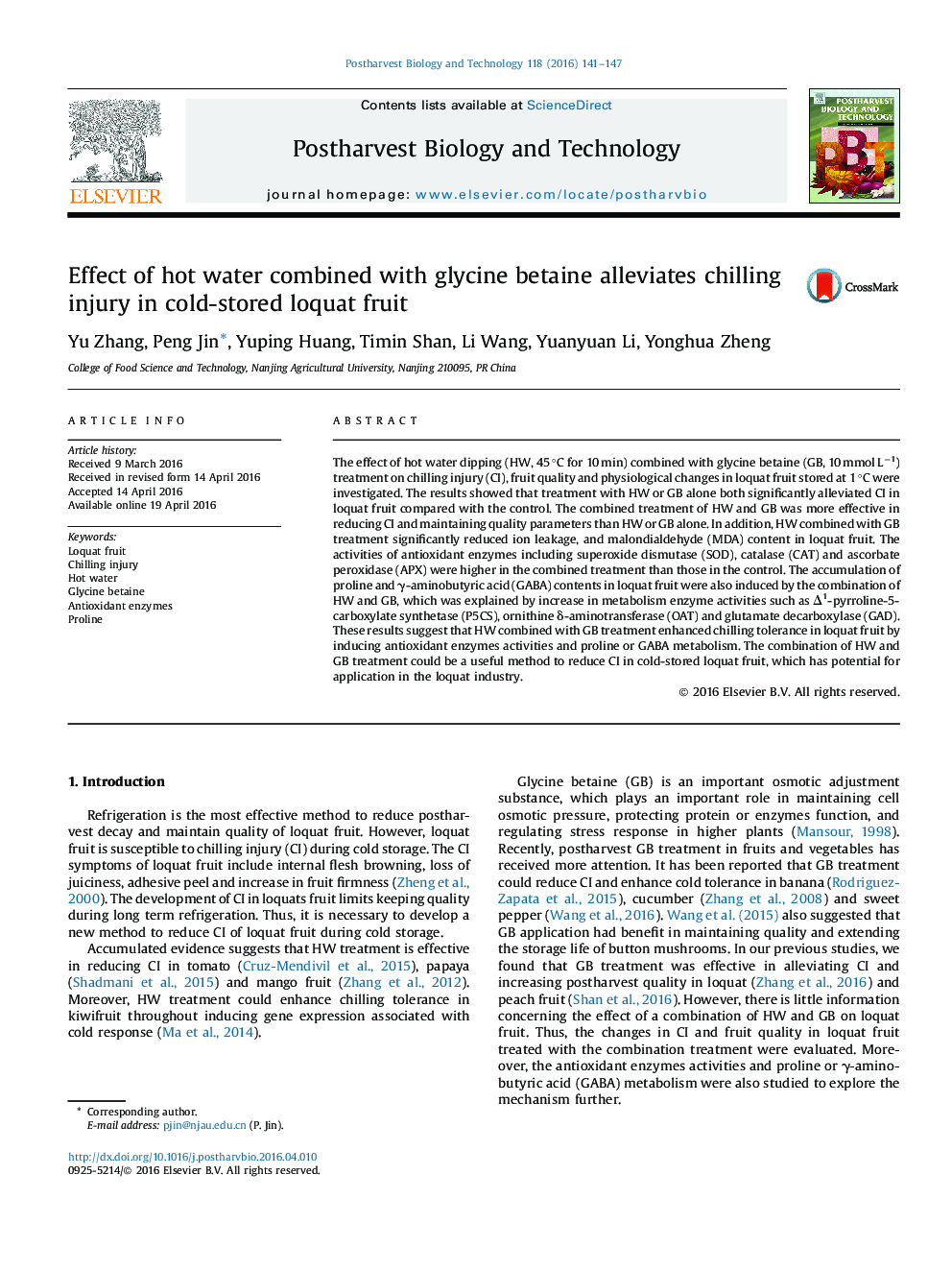| Article ID | Journal | Published Year | Pages | File Type |
|---|---|---|---|---|
| 4517801 | Postharvest Biology and Technology | 2016 | 7 Pages |
•Hot water combined with glycine betaine treatment reduced chilling injury.•The combined treatment improved quality retention in loquat fruit.•Antioxidant enzymes, proline and γ-aminobutyric acid were enhanced by the combined treatment.•The combined treatment is recommended in loquat fruit postharvest industry.
The effect of hot water dipping (HW, 45 °C for 10 min) combined with glycine betaine (GB, 10 mmol L−1) treatment on chilling injury (CI), fruit quality and physiological changes in loquat fruit stored at 1 °C were investigated. The results showed that treatment with HW or GB alone both significantly alleviated CI in loquat fruit compared with the control. The combined treatment of HW and GB was more effective in reducing CI and maintaining quality parameters than HW or GB alone. In addition, HW combined with GB treatment significantly reduced ion leakage, and malondialdehyde (MDA) content in loquat fruit. The activities of antioxidant enzymes including superoxide dismutase (SOD), catalase (CAT) and ascorbate peroxidase (APX) were higher in the combined treatment than those in the control. The accumulation of proline and γ-aminobutyric acid (GABA) contents in loquat fruit were also induced by the combination of HW and GB, which was explained by increase in metabolism enzyme activities such as Δ1-pyrroline-5-carboxylate synthetase (P5CS), ornithine δ-aminotransferase (OAT) and glutamate decarboxylase (GAD). These results suggest that HW combined with GB treatment enhanced chilling tolerance in loquat fruit by inducing antioxidant enzymes activities and proline or GABA metabolism. The combination of HW and GB treatment could be a useful method to reduce CI in cold-stored loquat fruit, which has potential for application in the loquat industry.
